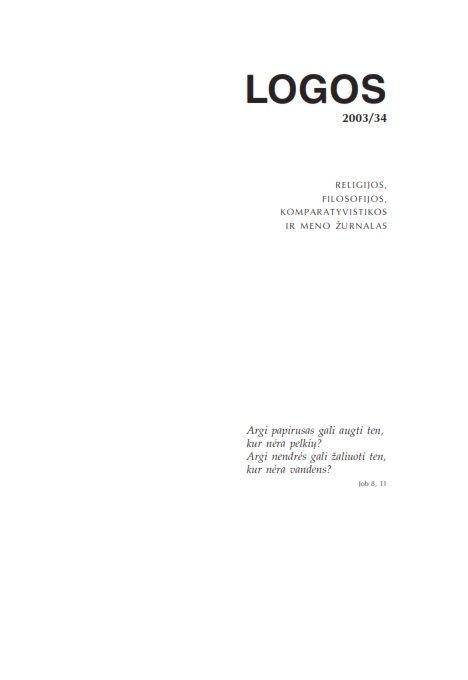„Ar katalikų bažnyčia moko, kad nėra vienintelės teisingos filosofijos?"
“Does the Catholic Church Teach that there is no one True Philosophy”
Author(s): John F. X. KnasasContributor(s): Gintautas Vyšniauskas (Translator)
Subject(s): Christian Theology and Religion, Metaphysics, Philosophy of Religion, Ontology
Published by: Visuomeninė organizacija »LOGOS«
Keywords: Thomism; being; metaphysics; philosophical pluralism; true;
Summary/Abstract: I assess various reasons for the claim that a Catholic should avoid being a proponent of a one and true philosophy. Rather, within limits, a Catholic philosopher ought to be a conceptual pluralist. These reasons include Pope John Paul II’s remarks in Fides et Ratio like the following: “The Church has no philosophy of her own nor does she canonize any one particular philosophy in preference to others.” (para. 49) Also, Gerald A. McCool in his From Unity to Pluralism: The Internal Evolution of Thomism argues that ironically the 20th-century Thomistic revival refuted the perceived call of Aeterni Patris to return to the conceptual formulations of Aquinas. In that respect I consider three “Thomistic” arguments for philosophical pluralism as put forth by J. M. Le Blond during a famous debate between French Dominicans and Jesuits following the Second World War. Le Blond’s “Thomistic” arguments include: the abstractive character of concepts, the equivalency of being and the true; and the epistemology of intellectual dynamism. My conclusion is that neither the Pope nor Aquinas are proponents of philosophical pluralism.
Journal: LOGOS - A Journal of Religion, Philosophy, Comparative Cultural Studies and Art
- Issue Year: 2003
- Issue No: 34
- Page Range: 87-96
- Page Count: 10
- Language: Lithuanian

